A summary of Ofcom International report comparing consumer use of the Internet in 17 countries
Value: [rating=5]
Recommended link: New Ofcom International Internet usage statistics
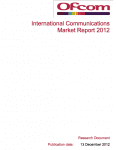 Ofcom’s seventh International Communications Market Report was published on 13th December 2012, this examines take-up, availability, price and use of broadband, landlines, mobiles, TV, radio and post across 17 major countries.
Ofcom’s seventh International Communications Market Report was published on 13th December 2012, this examines take-up, availability, price and use of broadband, landlines, mobiles, TV, radio and post across 17 major countries.
If you’re involved in reviewing changes in consumer and business demand for online services as part of planning for 2013 it’s worth a look - some statistics will be useful for presentations to convince colleagues or clients...
While the focus is on the UK since the research is produced by Ofcom, its purpose is to compare with other countries particularly Australia, France, Germany, Italy, Spain, and the United States. So it also has data if you're based in these countries and I have included charts below with comparisons between countries.
I will summarise this latest research on Internet use in 4 areas: mobile use, Internet shopping/Ecommerce, consumer use of different media and consumer-business communications.
1. Internet use with mobile devices
As part of the Ofcom consumer research, respondents were asked about their ownership and personal use of a range of devices.
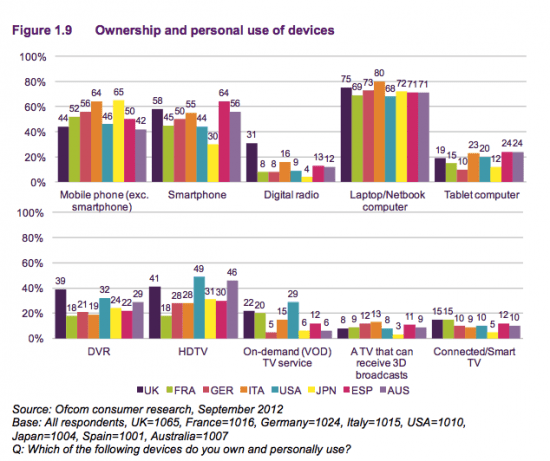
UK consumers are using laptops, smartphones and other connected devices to access the internet more often than other countries. Half (51%) use a laptop most often to connect to the internet, while 6% prefer smartphones and 6% other connected devices. Only 37% use a desktop computer as their most frequent means of accessing the internet.
The Ofcom report shows that the UK has one of the highest penetrations of smartphones, at 58%, while just under one in five (19%) has a tablet computer.
Tablet take-up is highest in Spain and Australia, both at 24%. Italy and the US have the next highest claimed ownership (23% and 20% respectively), with the UK in fifth place at 19%.
2. Internet shopping
Online purchase is now more popular in the UK than any other major country, and this is increasingly driven by use of mobile devices.
“UK consumers have now broken the £1,000-a-year spend barrier on internet shopping – more than any other country in our research”
The per-head spending on e-commerce was £1,083 in the UK, up 14% from £950 in 2010. Australia spends the second highest at £842, with Sweden third at £747.
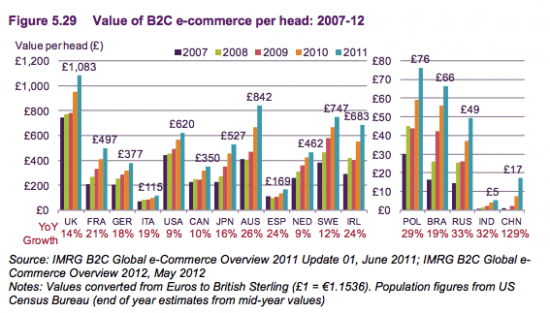
This data is from the IMRG and perhaps shows the growing potential of Ecommerce most clearly with year-on-year growth of 10% plus in most countries. Useful for planning incremental growth where you should be looking to beat these figures.
There is also further information suggesting the importance of mobile commerce - still in its infancy (although this is smartphone only, not including tablets).
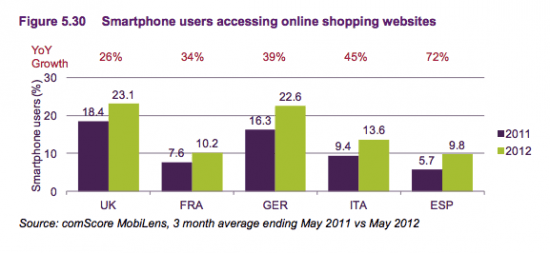
3. Consumer use of different types of communications
This chart shows the levels of regular use of selected communications services (with
regular use defined as at least once a week). Ofcom notes that their research was conducted among online panellists, who may be more likely than average to use selected communications services, so data should be treated with this caveat in mind.
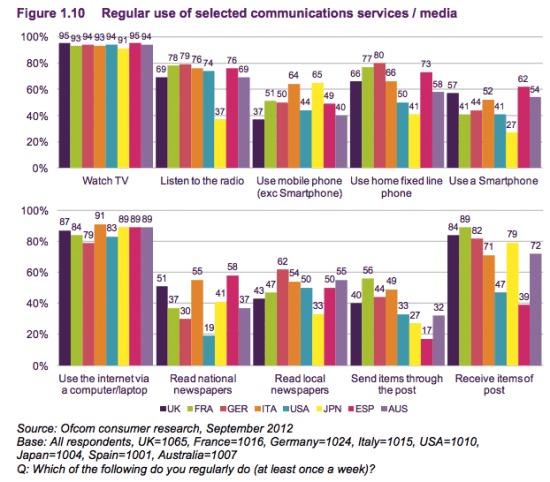
4. Use of Internet communications with business
This chart shows that for all countries, the most popular method of interacting with
businesses is email. Although this will often be for customer service, it shows ongoing acceptance of email by consumers and the continued importance of email marketing. Consumers in Japan are most likely to use email for these communications (74%), followed by consumers in the UK (66%), France (65%) and Australia (64%). Although in Italy email is the most widely-used way of communicating with
businesses, at 45%, Italian consumers are less likely than those in other countries to do this.
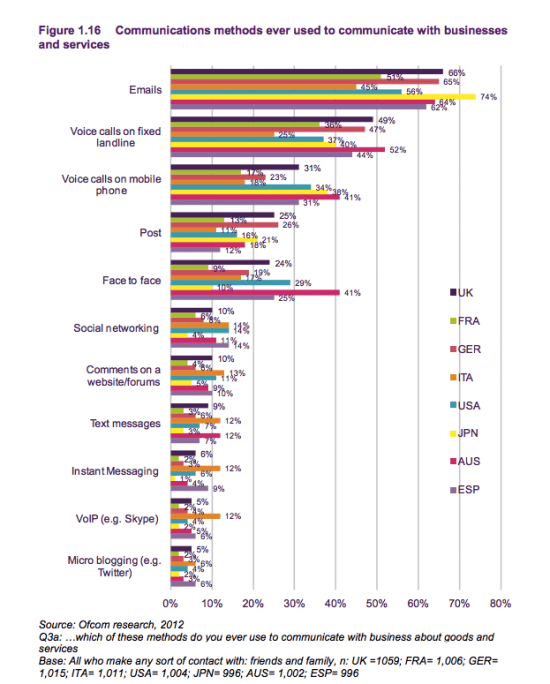
Across all countries, phone calls (either landline or mobile) are the next most widely-used way of communicating with businesses, although consumers in Italy are again less likely than consumers in other countries to communicate with businesses in this way.
The complete report is 340 pages long! If you want to browse the PDF the link is (currently): Communications Market International Report 2012.














